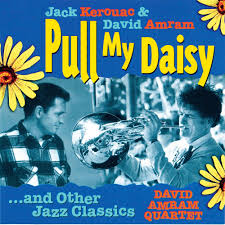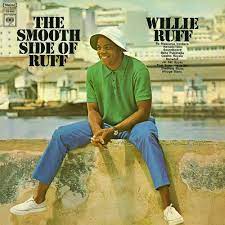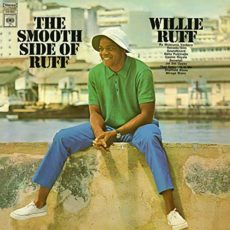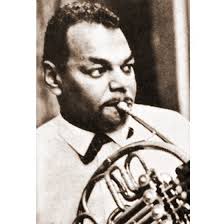
Daily Dose Of Jazz…
David Werner Amram III was born November 17, 1930 in Philadelphia, Pennsylvania. He studied at the Oberlin Conservatory of Music in 1948–1949, and earned a bachelor’s degree in European history from George Washington University in 1952. In 1955 he enrolled at the Manhattan School of Music, where he studied under Dimitri Mitropoulos, Vittorio Giannini, and Gunther Schuller. Under Schuller he studied French horn.
As a sideman or leader, David has worked with Aaron Copland, Thelonious Monk, Dizzy Gillespie, Charles Mingus, Jack Kerouac, Sonny Rollins, Lionel Hampton, Stan Getz, George Barrow, Jerry Dodgion, Paquito D’Rivera, Pepper Adams, Arturo Sandoval, Oscar Pettiford, Allen Ginsberg, Mary Lou Williams, Kenny Dorham, Ray Barretto, Wynton Marsalis, and others that included a wide range of folk, pop, and country figures.
In 1956, producer Joseph Papp hired Amram to compose scores for the New York Shakespeare Festival, the next year staged one of the first poetry readings with jazz, and in 1966 Leonard Bernstein chose Amram as the New York Philharmonic’s first composer-in-residence.
He went on four international musical tours to Brazil, Kenya, Cuba and the Middle East. He conducted a 15 piece orchestra for Betty Carter’s What Happened To Love? album, became an advocate for music education. He composed scores for the Elia Kazan films Splendor in the Grass, and The Arrangement and for the John Frankenheimer films The Young Savages and The Manchurian Candidate.
French hornist and pianist David Amram, who also plays Spanish guitar, penny whistle, sings and composes, has recorded nineteen albums as a leader and twenty-eight as a sideman.
More Posts: bandleader,composer,french horn,guitar,history,instrumental,jazz,music,penny whistle,piano,vocal

Daily Dose Of Jazz…
Willie Henry Ruff Jr. was born September 1, 1931 in Sheffield, Alabama. He attended the Yale School of Music earning his Bachelor and Masters of Music by 1954.
He first met Dwike Mitchell in 1947 when they were teenaged servicemen stationed at the former Lockbourne Air Force Base in Ohio. Mitchell recruited Ruff to play bass with his unit band for an Air Force radio program. The two of them went on to later play in Lionel Hampton’s band but left in 1955 to form their own group, the Mitchell-Ruff Duo. They played as a second act to artists such as Louis Armstrong, Count Basie, Duke Ellington, and Dizzy Gillespie.
From 1955 to 2011 the duo regularly performed and lectured throughout the United States, Asia, Africa, and Europe. The Mitchell-Ruff Duo was the first jazz band to play in the Soviet Union in 1959 and in China in 1981. Chosen by John Hammond to be the bass player for the recording sessions of Songs of Leonard Cohen, an album first released in 1967. During those sessions, he and Cohen laid down the bed tracks for most of the songs on the album.
He is one of the founders of the W. C. Handy Music Festival in Florence, Alabama, was a faculty member at the Yale School of Music from 1971 until his retirement in 2017, teaching music history, ethnomusicology, and arranging. Willie was a founding Director of the Duke Ellington Fellowship Program at Yale, held a visiting appointment at Duke University, where he oversaw the jazz program and directed the Duke Jazz Ensemble and was on the faculty at UCLA and Dartmouth.
Over the course of his career he recorded as a soloist, in a duo and as a sideman with Quincy Jones, Bobby Hutcherson, Gil Evans, Benny Golson, Milt Jackson, Lalo Schifrin, Sonny Stitt, Clifford Coulter, Miles Davis and Jimmy Smith.
French horn and double bassist Willie Ruff, who played in the Mitchell-Ruff Duo with pianist for over 50 years, was inducted into the Alabama Jazz Hall of Fame, and has published his memoir A Call to Assembly: The Autobiography of a Musical Storyteller, is retired at 91.
More Posts: bandleader,bass,french horn,history,instrumental,jazz,music

Three Wishes
When the subject of three wishes was broached, Willie Ruff told Nica he had only one that he would like to be granted and that was:
-
-
“I wouldn’t have three wishes. I would only have one and that’s to be forty. Because by then I will have everything I need.”
-
*Excerpt from Three Wishes: An Intimate Look at Jazz Greats ~ Compiled and Photographed by Pannonica de Koenigswarter
Willie Ruff: September 1, 1931 | French Horn, Double BassMore Posts: baroness,bass,french horn,history,instrumental,jazz,music,pannonica,three,wishes

Daily Dose Of Jazz…
Willie Ruff was born on September 1, 1931 in Sheffield, Alabama and learned to play both the French horn and the double bass. He attended the Yale School of Music graduating with a Bachelor and Master of Music degrees by 1954.
He met pianist Dwike Mitchell in 1947 when they were teenage servicemen stationed at the former Lockbourne Air Force Base in Ohio. They began a professional relationship when Mitchell recruited him to play bass with his unit band for an Air Force radio program. They later played in Lionel Hampton’s band but left in 1955 to form their own group, then together as the Mitchell-Ruff Duo that lasted over fifty years. They also played as the second act to artists such as Louis Armstrong, Count Basie, Duke Ellington, and Dizzy Gillespie.
From 1955 to 2011, the duo regularly performed and lectured in the United States, Asia, Africa, and Europe. In 1950 the Mitchell-Ruff Duo was the first jazz band to play in the Soviet Union and in China in 1981. Ruff was chosen by John Hammond to be the bass player for the recording sessions of Songs of Leonard Cohen, was one of the founders of the W. C. Handy Music Festival in Florence, Alabama in 1982.
As an educator, Willie was a faculty member at the Yale School of Music, teaching music history, ethnomusicology, and arranging. He is founding Director of the Duke Ellington Fellowship Program at Yale, held a visiting appointment at Duke University, where he oversaw the jazz program and directed the Duke Jazz Ensemble, and also has been on faculty at UCLA and Dartmouth.
French hornist, double bassist, music scholar, and educator Willie Ruff, was awarded the Sanford Medal, the Connecticut Governor’s Arts Award, and was an inductee of the Alabama Jazz Hall of Fame, primarily a Yale professor from 1971 to 2017, and continues to reside in Alabama.
More Posts: bass,educator,french horn,history,instrumental,jazz,music

Three Wishes
What Julius Watkins said to Pannnica when she inquired of him what his three wishes were was:
-
-
“To be three nice young ladies.”
-
“Three more.”
-
“To put the six of them to work.”
-
*Excerpt from Three Wishes: An Intimate Look at Jazz Greats ~ Compiled and Photographed by Pannonica de Koenigswarter
More Posts: baroness,french horn,history,instrumental,jazz,music,pannonica,three,wishes





